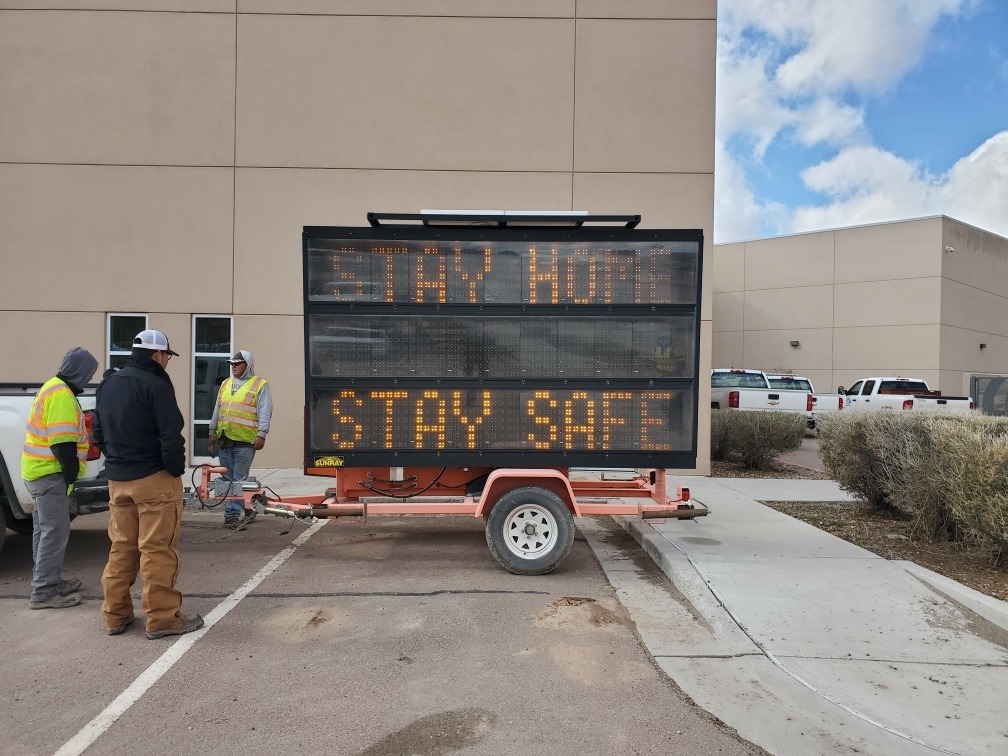
- Details
- By Native News Online Staff
WINDOW ROCK, Ariz. — On Wednesday, the Navajo Department of Health, in coordination with the Navajo Epidemiology Center and the Navajo Area Indian Health Service, reported 160 new COVID-19 positive cases for the Navajo Nation and four more deaths. The total number of positive COVID-19 cases is now 20,095, including six delayed reported cases.
The total number of deaths is now 731 as of Wednesday. Reports indicate that 10,779 individuals have recovered from COVID-19, and 186,724 COVID-19 tests have been administered.
Navajo Nation COVID-19 positive cases by Service Unit:
- Chinle Service Unit: 3,886
- Crownpoint Service Unit: 2,138
- Ft. Defiance Service Unit: 2,142
- Gallup Service Unit: 3,303
- Kayenta Service Unit: 1,968
- Shiprock Service Unit: 3,340
- Tuba City Service Unit: 2,084
- Winslow Service Unit: 1,213
* 21 residences with COVID-19 positive cases are not specific enough to place them accurately in a Service Unit.
On Wednesday, the state of Arizona reported 4,848 new cases, Utah reported 2,928, and New Mexico reported 1,816 new cases. The Navajo Nation remains in a three-week lockdown that requires all residents to remain home at all times with the exception of essential workers that are required to report to work, cases of emergencies, and to obtain essential items such as food, water, and medicine.
“The Navajo Nation is getting some relief with the deployment of medical personnel from the U.S. Department of Defense and Department of Health and Human Services and with the distribution of the first dose of the Pfizer vaccine, but this does not mean that it is time to let up. We have to continue taking all precautions and staying home as much as possible to avoid another large surge of new COVID-19 cases. Officials with the Chinle Comprehensive Health Care Facility indicated on Tuesday that they are beginning to see a flattening of the curve in their region. This is very good news, but we have to keep our guard up and keep fighting. Stay home as much as possible, wear a mask, practice social distancing, avoid gatherings and crowds, and wash your hands often,” Navajo Nation President Jonathan Nez said.
On Thursday, Dec. 17, the Nez-Lizer Administration will distribute food packages at Birdsprings Chapter at 12:00 p.m. and Indian Wells Chapter at 2:00 p.m. (MST) to help people stay home and stay safe during the COVID-19 pandemic.
On Thursday, Dec. 17 at 6:00 p.m. (MST), the Nez-Lizer Administration will host an online town hall on the Nez-Lizer Facebook page to provide additional updates.
For more information, including helpful prevention tips, and resources to help stop the spread of COVID-19, visit the Navajo Department of Health's COVID-19 website: https://www.google.com/url?q=http://www.ndoh.navajo-nsn.gov/COVID-19&source=gmail&ust=1608258327801000&usg=AFQjCNEa630h10_EdQ1VIbtSuQ6vkeDzDA">http://www.ndoh.navajo-nsn.gov/COVID-19. For COVID-19 related questions and information, call (928) 871-7014.
More Stories Like This
Native News Weekly (August 25, 2024): D.C. BriefsNavajo Nation Mourns the Passing of Former Vice President Rex Lee Jim
Deb Haaland Earns Endorsement From Communications Workers of America Local 7076
University Soccer Standout Leads by Example
Two Native Americans Named to Democratic Congressional Campaign Committee's“Red to Blue” Program
Help us defend tribal sovereignty.
At Native News Online, our mission is rooted in telling the stories that strengthen sovereignty and uplift Indigenous voices — not just at year’s end, but every single day.
Because of your generosity last year, we were able to keep our reporters on the ground in tribal communities, at national gatherings and in the halls of Congress — covering the issues that matter most to Indian Country: sovereignty, culture, education, health and economic opportunity.
That support sustained us through a tough year in 2025. Now, as we look to the year ahead, we need your help right now to ensure warrior journalism remains strong — reporting that defends tribal sovereignty, amplifies Native truth, and holds power accountable.
 The stakes couldn't be higher. Your support keeps Native voices heard, Native stories told and Native sovereignty defended.
The stakes couldn't be higher. Your support keeps Native voices heard, Native stories told and Native sovereignty defended.
Stand with Warrior Journalism today.
Levi Rickert (Potawatomi), Editor & Publisher

